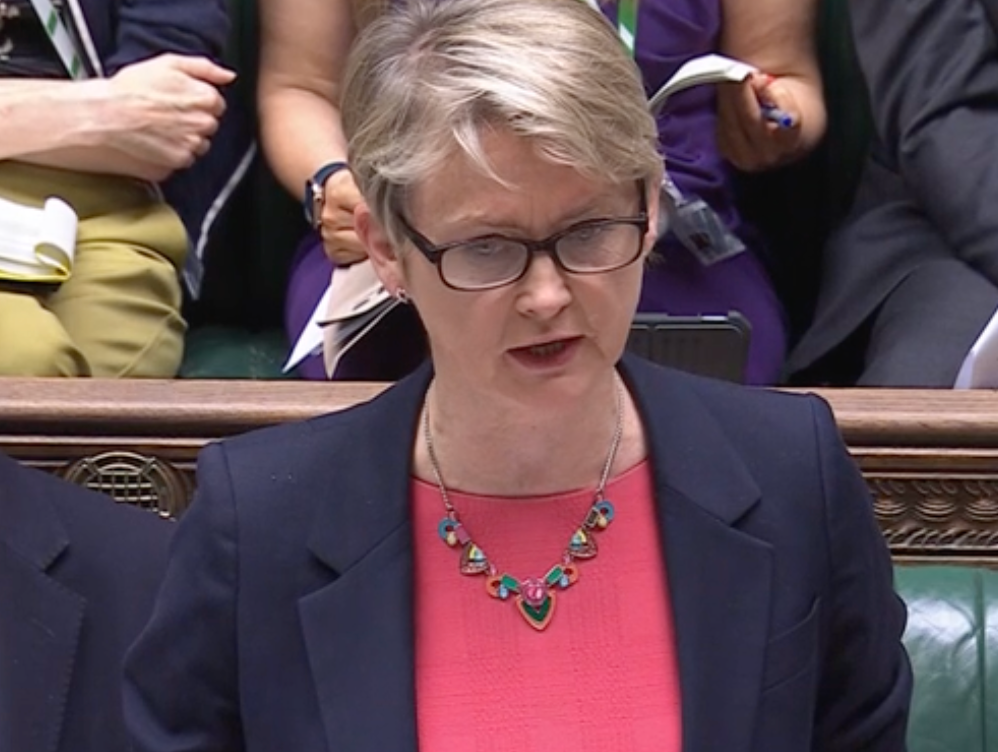Labour facing fresh calls to back EU youth mobility scheme as party launches ‘new approach’ on migration
The home secretary on Tuesday launched a plan to boost the UK workforce’s skills before recruiting abroad in a bid to bring overall numbers down
Your support helps us to tell the story
From reproductive rights to climate change to Big Tech, The Independent is on the ground when the story is developing. Whether it's investigating the financials of Elon Musk's pro-Trump PAC or producing our latest documentary, 'The A Word', which shines a light on the American women fighting for reproductive rights, we know how important it is to parse out the facts from the messaging.
At such a critical moment in US history, we need reporters on the ground. Your donation allows us to keep sending journalists to speak to both sides of the story.
The Independent is trusted by Americans across the entire political spectrum. And unlike many other quality news outlets, we choose not to lock Americans out of our reporting and analysis with paywalls. We believe quality journalism should be available to everyone, paid for by those who can afford it.
Your support makes all the difference.The government has been urged to pursue a youth mobility scheme with the European Union (EU) alongside the “new approach” to legal migration launched by Yvette Cooper.
The home secretary on Tuesday launched a plan to boost the UK workforce’s skills before recruiting abroad in a bid to bring overall numbers down.
In a swipe at the previous Conservative government, Ms Cooper said rising levels of legal migration in recent years reflected a "failure over many years to tackle skills shortages and other problems in the UK labour market".
And she said: "This is why we are setting out a different approach - one that links migration policy and visa controls to skills and labour market policies - so immigration is not used as an alternative to training or tackling workforce problems here at home.
But experts called on the home secretary to pursue a mobility scheme with the EU which would let young people live, study and work across the bloc in exchange for Europeans being able to do the same in Britain.
Dr Mike Galsworthy, chairman of the European Movement UK, said Ms Cooper is right that Britain needs to better train its citizens to fill gaps in the work force. But he told The Independent “this should not be used as a reason to penalise our own youth, universities, NHS, hospitality and small businesses - many which badly need opportunities opened right now”.

He added: “Shutting down critical mobility to and from our neighbours will not help our economy nor serve our own citizens well.”
Polling shows overwhelming support among the public for a youth mobility agreement with the bloc, with YouGov suggesting 68 per cent are in favour compared with just 15 per cent who are opposed.
“The approach should be yes to training and yes to mobility to reinvigorate our country,” Dr Galsworthy added.
Meanwhile president of the Young European Movement Cecilia Jastrzembska said there is “unmistakable public appetite for a youth mobility scheme as part of a meaningful reset with the EU”.
She also told The Independent the loss of access to Erasmus+ after Brexit was a “devastating loss” for young people and called for the scheme to be restored.
She said the moves should be part of the reset being pursued by Sir Keir Starmer’s government with European leaders after years of strained relations with the bloc under the Conservatives.

Britain has individual youth mobility schemes with 13 countries including Australia, New Zealand and Canada which lets them study or work in the UK for up to two years. EU nations are not included in the scheme, but the question of whether a post-Brexit deal can be struck has risen up the political agenda.
The UK government has said in the past that it prefers bilateral agreements rather than seeking an EU-wide deal.
In April the European Commission (EC) said it would seek permission from EU member states to open negotiations on a “youth mobility scheme” for UK citizens aged 18-30. But the UK government this week said “we are not considering a youth mobility scheme”.
On Tuesday Ms Cooper pointed to a rise in non-EU long-term migration from 277,000 in the year to December 2022 to 423,000 in the year to December 2023.
The number of work visas in the 12 months to March 2024 was, meanwhile, 605,264, or "over three times that of 2019", she said.
"That reflects a failure over many years to tackle skills shortages and other problems in the UK labour market, meaning too many sectors have remained reliant on international recruitment, instead of being able to source the skills they need here at home," Ms Cooper said.
"This approach will be important to enabling delivery of the Government’s broader agenda."
Under Labour, the Migration Advisory Council - which provides advice to the Government on where skills shortages can be filled by migration - will work alongside Skills England and other bodies as part of a new "coherent approach to skills, migration and labour market policy".
The agencies will also work alongside the devolved governments in Scotland, Northern Ireland and Wales towards the same end.
Elsewhere in the statement, Ms Cooper said Labour would keep the Tory government’s minimum income requirement for a partner or spouse to be granted a visa, but did not commit to raise it in line with the previous administration’s intent.
The lower limit was raised from £18,600 to a £29,000 income per year by Rishi Sunak’s government, with plans to increase it eventually to £38,700 by an unspecified date in 2025.
Ms Cooper said in the statement there "will be no further changes" to the current limit until a review by the Migration Advisory Council is complete.
The home secretary also said the new Government would continue with a raft of other measures introduced by the Tories to quell legal migration numbers, including those aimed at reducing "the potential for abuse on the student and graduate visa routes".

Join our commenting forum
Join thought-provoking conversations, follow other Independent readers and see their replies
Comments